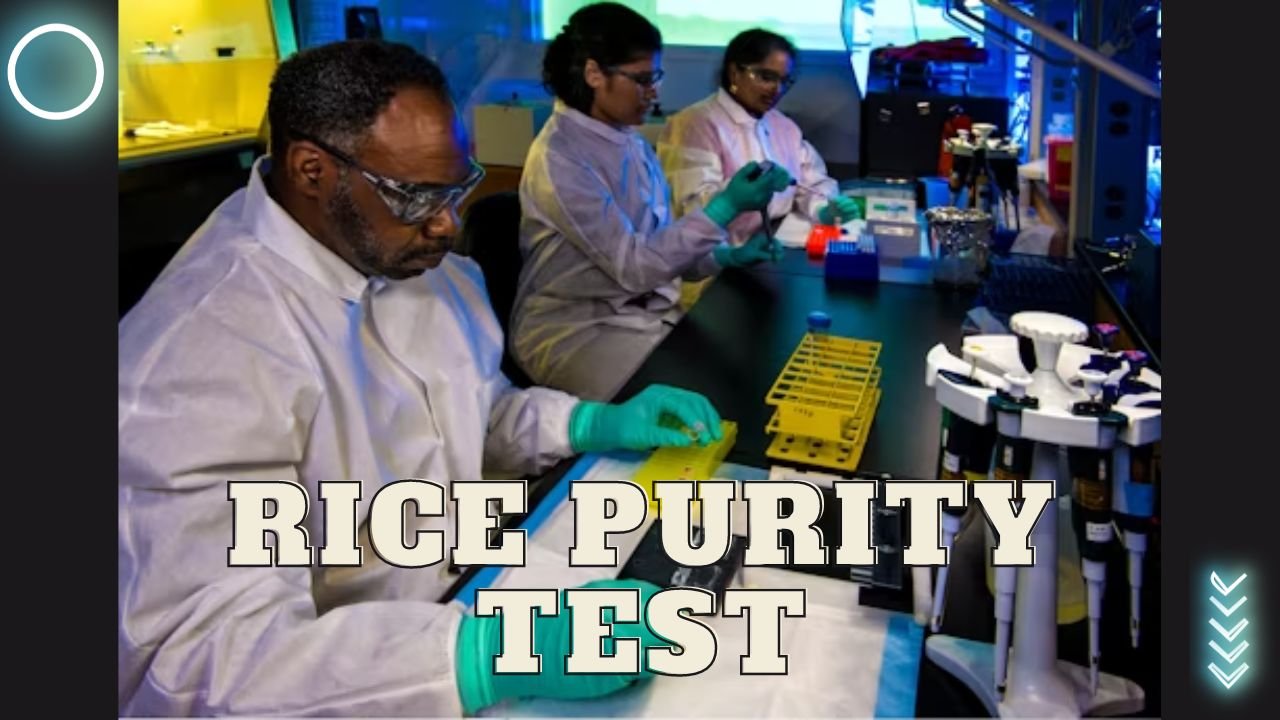In the world of online tradition, in which traits and challenges come and go, one phenomenon has stood the test of time, quietly captivating generations of net users: the Rice Purity Test. This seemingly harmless quiz has captured the interest of tens of millions, imparting a peek into the lifestyles and experiences of its takers. But what exactly is the Rice Purity Test? How did it originate, and what does it monitor about our society? Join us on an adventure to resolve the mysteries and significance of this net sensation.
What is the Rice Purity Test?
The Rice Purity Test is a self-graded survey that evaluates the meant “purity” of an individual primarily based on their behaviors and experiences. It includes a sequence of questions covering a huge variety of subjects, from personal habits to romantic encounters and the whole thing in between. Participants solve every question genuinely, assigning themselves factors based totally on their experiences or lack thereof.
The take a look at is named after Rice University, wherein it is rumored to have originated as a newbies initiation ritual many years in the past. Over time, it migrated online and received popularity throughout diverse systems and groups. Its enchantment lies in its capability to initiate introspection and interest approximately one’s own life choices and studies.
The Origins and Evolution of the Rice Purity Test
The Rice Purity Test strains its origins to Rice University, wherein it purportedly commenced as a novice initiation ritual. Originally allotted as a paper questionnaire, it changed into a method for college kids to bond over shared stories and gauge their perceived “purity.” Over time, the check migrated online, gaining traction throughout diverse structures and communities. Today, it has developed right into a customizable survey with diverse variations catering to exceptional interests and demographics.
The Psychology Behind the Test
Psychologically, the Rice Purity Test gives interesting insights into human behavior and social dynamics. By studying the responses and scores, researchers can discern styles in threat-taking conduct, attitudes towards intimacy, and the effect of peer companies. The take-a-look serves as a microcosm of societal norms and personal values, losing mild on how individuals navigate moral dilemmas and define their identities inside social contexts.
Cultural Significance and Impact
Culturally, the Rice Purity Test serves as a reflection of societal attitudes closer to morality and private conduct. Its recognition underscores the time-honored fascination with categorizing and informing human conduct. However, the check’s emphasis on purity also can perpetuate stereotypes and judgments based on arbitrary standards. Critics argue that it oversimplifies complex problems and pressures people to conform to societal expectancies, raising questions about its relevance and moral implications.
The Role of Technology and Social Media
In the age of virtual connectivity, the Rice Purity Test has thrived on social media and internet boards, where it continues to have interaction with customers of all ages. Its accessibility and adaptableness have contributed to its enduring recognition, allowing it to go beyond generational limitations and geographic barriers. Customized variations of the take a look at cater to niche communities, fostering an experience of belonging and shared experience among individuals.
Controversies and Ethical Considerations
Despite its vast attraction, the Rice Purity Test has faced criticism for its potential to stigmatize people primarily based on their alternatives and reviews. Concerns about privacy, consent, and the dissemination of sensitive facts have triggered discussions approximately accountable use and interpretation of the take a look at results. Ethical concerns arise regarding the unintentional results of publicizing non-public ratings and the effect on a person’s well-being.
Educational and Societal Reflections
Beyond its leisure cost, the Rice Purity Test prompts vital reflection on societal norms, peer strain, and personal growth. It encourages people to have a look at their values, boundaries, and attitudes towards intimacy and substance use. Schools and universities might also use variations of the test to facilitate discussions on selection-making, ethics, and the challenges of navigating adolescence and young adulthood in a complex international.
The Future of the Rice Purity Test
Looking in advance, the Rice Purity Test is likely to evolve alongside modifications in technology and societal attitudes. Its enduring popularity indicates that it’s going to stay a fixture in the online lifestyle, adapting to reflect modern trends and social dynamics. As new generations of net users discover and reinterpret the test, its importance as a cultural artifact and psychological device will continue to evolve, imparting insights into the ever-converting panorama of human revel.
Community and Peer Influence
The Rice Purity Test serves as a communal activity, fostering discussions and camaraderie among participants. Sharing scores and comparing studies can beef up social bonds and offer insights into differing perspectives on morality and private picks. The test’s communal nature underscores the effect of peer companies in shaping a person’s behaviors and attitudes.
Reflections on Personal Growth
Taking the Rice Purity Test may be a reflective exercise, prompting people to evaluate their increase and improvement over time. Comparing rankings from extraordinary levels of lifestyles may also screen adjustments in values, priorities, and reviews. It gives a unique possibility for introspection and self-recognition, highlighting the evolution of one’s beliefs and attitudes closer to numerous aspects of lifestyles.
Gender and Cultural Variances
Across exclusive cultures and gender identities, interpretations and responses to the Rice Purity Test can vary extensively. Cultural norms and expectancies concerning relationships, sexuality, and substance use affect a person’s perceptions of purity and morality. Understanding those variances gives perception into the variety of human studies and the complexity of societal norms globally.
Impact on Mental Health Awareness
The check’s exploration of private behaviors and reviews can contribute to broader discussions approximately intellectual health focus and well-being. It encourages individuals to consider the emotional and mental elements that affect decision-making and self-perception. Open speaking about the check results can also promote know-how and support for those navigating mental health-demanding situations.
Educational Applications in Psychology
In educational settings, the Rice Purity Test can function as a practical device for exploring mental ideas along with identification formatioPeerseer have an impact on moral development. By studying test responses, educators can facilitate discussions on moral selection-making, social pressures, and the effect of cultural impacts on conduct. It complements students’ crucial questioning abilities and empathy closer to various views.
Generational Perspectives and Trends
Generational differences in responses to the Rice Purity Test replicate evolving societal attitudes and cultural shifts through the years. Younger generations might also approach the take a look at with extraordinary views on relationships, sexuality, and private boundaries in comparison to older generations. Analyzing those tendencies gives precious insights into converting norms and values throughout specific age businesses.
Ethical Decision-Making and Peer Pressure
The test prompts considerations of ethical choice-making in the face of peer stress and societal expectations. It encourages people to reflect on times when they will have felt compelled to comply or compromise their values. Discussions around those scenarios can promote recognition of the importance of autonomy, consent, and personal integrity in navigating social interactions.
Influence of Media and Pop Culture
Media representations and popular lifestyles influence perceptions of purity and morality, shaping character attitudes toward behaviors along with substance use and sexual pastimes. The Rice Purity Test displays those effects, serving as a barometer of societal norms perpetuated through media portrayals. Analyzing media’s impact at the take a look at’s consequences provides insights into the interplay among amusement, ethics, and private values.
Globalization and Cross-Cultural Comparisons
In a globalized global, the Rice Purity Test offers opportunities for move-cultural comparisons of attitudes closer to purity, relationships, and personal conduct. Cultural variations in responses highlight the range of moral frameworks and societal expectancies internationally. Studying those versions fosters cultural awareness and empathy closer to differing views on ethics and behavior.
Impact on Social Media Behavior
The test’s reputation on social media platforms affects online behavior and interactions among customers. Sharing rankings and discussing take a look at outcomes that contribute to virtual communities’ engagement and identification formation. It illustrates how online structures facilitate conversations about personal stories and moral dilemmas, shaping digital relationships and virtual cultures.
Legal and Ethical Implications
Legal and moral concerns surround the Rice Purity Test’s management and interpretation, especially concerning consent and privacy. Responsible administration ensures contributors’ autonomy in deciding to take the test and proportion their consequences. Protecting private statistics and respecting individuals’ privacy rights are important in keeping moral standards in online interactions and information series.
Future Research and Psychological Insights
Continued studies at the Rice Purity Test can yield deeper mental insights into human behavior, decision-making processes, and societal effects. Exploring correlations between take a look at rankings and real-existence behaviors gives precious records for understanding threat-taking tendencies, peer dynamics, and cultural norms. Future studies may also find new traits and styles in human conduct, informing broader discussions on morality and social psychology.
Impact on Personal Relationships
The Rice Purity Test can influence non-public relationships by using sparking discussions about boundaries, expectations, and mutual expertise. Sharing test effects can facilitate open conversation and toughen emotional connections among companions, buddies, or family individuals. It encourages empathy and respect for man or woman variations in stories and perspectives on purity and morality.
Psychological Resilience and Self-Perception
Taking the Rice Purity Test can make contributions to mental resilience using prompting individuals to confront and mirror past reports and selections. It fosters a deeper know-how of personal strengths and areas for growth, selling self-attractiveness and fantastic self-perception. The system of self-evaluation encourages resilience in navigating demanding situations and uncertainties in existence.
Role in Online Identity Formation
In the digital age, the Rice Purity Test plays a position in shaping online identities and self-illustration. Sharing test ratings on social media or boards can affect how people are perceived by others and contribute to their digital personas. It displays a blend of authenticity, humor, and vulnerability in online interactions, influencing digital relationships and community dynamics.
Reflections on Social Norms and Cultural Evolution
The test prompts reflections on social norms and cultural evolution concerning purity, morality, and private conduct. Comparing rankings throughout different demographics shows shifts in societal attitudes toward relationships, sexuality, and substance use over time. It highlights the dynamic nature of cultural norms and the impact of historical, social, and political elements on individual behaviors and values.
Educational and Preventative Health Applications
Beyond its recreational use, the Rice Purity Test has academic and preventative fitness programs. Schools and universities may additionally use versions of the check to promote discussions on responsible decision-making, hazard consciousness, and the effects of behaviors including substance use and unprotected sex. It serves as a device for raising consciousness approximately fitness risks and promoting knowledgeable selections among teens.
Conclusion
The Rice Purity Test transcends its origins as an easy questionnaire, becoming a cultural phenomenon that sparks introspection, fosters community, and displays societal attitudes in the direction of morality and personal behavior. Its enduring recognition and various interpretations underscore its relevance in navigating complex human reviews and know-how of the ever-evolving dynamics of modern life. Whether taken for entertainment, self-reflection, or educational functions, the test continues to offer precious insights into individual values, social influences, and the widespread quest for self-consciousness and attractiveness.
FAQs:
1. What is the Rice Purity Test?
The Rice Purity Test is a self-graded survey that assesses an individual’s perceived “purity” based on their reports and behaviors across a huge variety of classes, inclusive of relationships, substance use, and personal conduct.
2. Where did the Rice Purity Test originate?
The check is rumored to have originated at Rice University as a novice initiation ritual, later transitioning to an online format and gaining a reputation across diverse net groups.
3. How does the Rice Purity Test work?
Participants answer a sequence of questions, every assigned a factor value based totally on the perceived purity of the behavior or enjoy defined. Scores are calculated at the cease to decide wherein individuals fall on a purity scale.
4. What categories does the Rice Purity Test cowl?
The test normally includes classes including sexual pastimes, substance use, private behavior, unlawful sports, and moral selections, among others.
5. Is the Rice Purity Test correct?
The check’s accuracy is subjective and relies on members’ honesty in self-reporting their experiences. It is extra of a mirrored image of character perceptions and values as opposed to a goal measure of purity.











